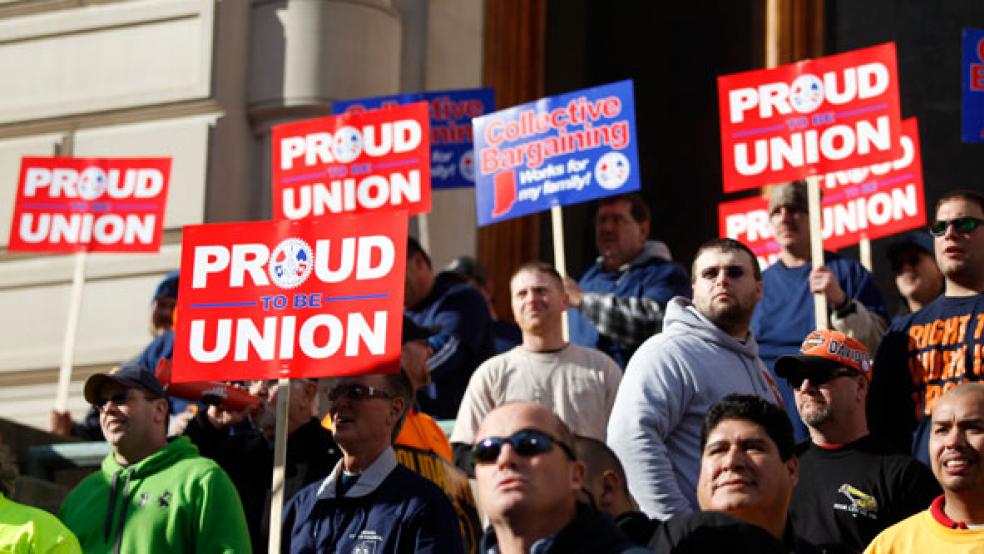Here's what stood out most about the results:
1. Bruce Rauner won, but it was close.
Former private equity executive Bruce Rauner won the Republican nomination for governor. But it wasn't the easy victory some thought it might be.
Rauner beat state Sen. Kirk Dillard by about three points.
One plausible explanation of why it was so close: The multimillion dollar effort by Democrats and labor to attack Rauner in the lead-up to the race. Public unions fear Rauner, who has vowed to take them on, would swiftly curb their power if elected. Dillard, who is much friendlier to labor, won the backing and financial support of some unions down the stretch. In the end, it wasn't enough.
But it's clear the onslaught had some effect. Democrats are looking to build on their push by painting Rauner as an out of touch Republican and likening him Mitt Romney in the general election.
Republicans, meanwhile, like the contrast they can emphasize between Rauner's outsider/private sector credentials and Gov. Pat Quinn's insider profile - especially against the backdrop of the state's fiscal problems. There are shades of the 2012 presidential race in Illinois. This could be one of the most competitive races of 2014.
2. Labor is in a bit of a pickle.
Speaking of Quinn, he's not exactly a hero of the organized labor movement at the moment. The governor signed a pension reform bill into law late last year to address the state's huge unfunded pension obligations.
The law means slashed benefits for public employees, which is why public unions were not thrilled. Some have even banded together to sue over the law. In a way, unions are left to choose between a less than ideal candidate (Quinn) and a candidate who they disagree with from top to bottom (Rauner). That seems to suggest that they will eventually fall in line behind Quinn. (He already has the state AFL-CIO's support.) But it's not going to be a match made in heaven and the question is whether they will be with him full-bore or not.
3. None of the Republicans who voted for gay marriage lost.
When the Illinois state House passed a bill to legalize gay marriage last fall, just three out of 47 Republicans voted for it. On Tuesday, none of them lost.
State Rep. Tom Cross (R) cruised to a 14-point victory in the primary for state treasurer while state Rep. Ed Sullivan (R) easily won renomination in his district. The third, state Rep. Ron Sandack (R), narrowly edged out his opponent by fewer than 200 votes, according to an unofficial tally. The close margin could mean the race goes to a recount.
Sandack and Sullivan both faced pressure from third-party groups looking to oust them over their gay marriage votes. In Sandack's case, the issue became a central focus. Had the three Republicans lost, it would have probably given pause to Republicans considering backing gay marriage in other states where the matter comes up in the future. But given two decisive wins and a third tentative victory, gay rights advocates have a lot to be happy about a day after the election.
4. No big surprises in the House. Now Democrats have to play defense.
Rep. Rodney Davis (R) didn't lose his primary. Nor did Rep. Adam Kinzinger (R), for that matter, or any other incumbent. The U.S. House races played out as expected, setting the stage for a slate of competitive and potentially competitive general election contests.
The most competitive race right now is the rematch between Rep. Brad Schneider (D) and former congressman Bob Dold (R).
Davis could have his hands full against Democrat Ann Callis, while Reps. Bill Enyart (D) and Cheri Bustos (D) are also expected to face competitive contests. Less likely to flip but still worth watching are the seats of Reps. Bill Foster (D) and Tammy Duckworth (D). House Democrats had great success in Illinois in 2012.
Now they have to defend those gains.
This article originally appeared in The Washington Post.
Why Don't Dems Vote in Midterms?
Pro-Russia Forces Break into Ukrainian Naval Base
U.S. Ponders Next Moves in Crimea



